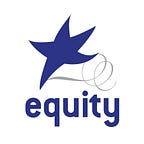DIVERSITY SPOTLIGHT: MOREBLESSING MATURURE
A frustration with the status quo led this multi-talented artist on wide-ranging exploration for answers, and action.
Moreblessing Maturure is a Zimbabwean/Australian inter-disciplinary artist- actor, writer, TEDx speaker and the creative director of FOLK Magazine; an arts and culture publication dedicated to showcasing Australian Artists of Colour and their work. She also writes across literature, (DJed Press, Eureka Street, SBS Voices) stage (Sydney Theatre Company, ATYP, Playwriting Australia) and screen (Afro Sistahs).
What made you want to get into the acting industry?
I never saw myself working in an office. At first it was athletics then visual arts and I somehow landed here. I wanted to be an actor. I don’t think I particularly wanted to be in “the industry”. Looking back, I did not anticipate all the other mess I’d have to navigate for daring to dream of being an actor (Bless).
I wanted to create and tell stories and not be broke; still working on this.
What are your thoughts on diversity in television/film /theatre?
Oooohh boi! I did a WHOLE TEDx talk on my thoughts. In a recent interview, Annette Shun Wah posed the following question: “Who are the famous Asian Australian actors of the stage or screen?”
When Australians in Film announced their 2019 Breakthrough award recipients I wondered why the stellar international achievements of Indigenous Actors and Actors of Colour are repeatedly under acknowledged.
Late last year conversations around the lack of media support and coverage of Australian artists of colour who achieve equal or greater success than their white counterparts. In summary all the -isms that affect every other aspect of our lives are prevalent in the entertainment sector. These systemic realities are reflected in Diversity Arts Australia’s recent report that showed despite years of “talk” about prioritising diversity, over 50% of Australia’s leading arts organisations, across all disciplines, have no CALD representation in any leadership or decision-making positions.
These conversations go in cycles. There was a time where I’d offer solutions for free, but if folks are looking to find ways to improve, let me know where to send the invoice. Nothing I’m saying is particularly new. If our industry continues to demand those without power to repeat themselves ad nauseam, with no commitment to action, they can pay up.
Why are you an Equity member?
Through social justice work, I have generally understood that systems don’t always default to support those without power — so it made sense to join the union that looked out for folks at all levels of the totem pole. Earlier on, I’ll admit I wasn’t 100% sure what the union specifically did, however, in recent years I’m continually floored by how much Equity and MEAA at large do for artists; more often than not working beyond their resources to fight for all those rights we assume are given — because performers matter that much to them. Equity’s work benefits everyone in our industry, member-or-not, and being able to contribute my part to enable them to do more is why I continue to be a member.
What made you want to join the Equity Diversity Committee?
I was already doing the work and as soon as I found out it existed, I had to be part of it. And unions are there to represent their members, and that included me and those like me. It was great to know that I wasn’t the only one who was frustrated by the state of affairs.
I don’t have a degree in anything (my migrant parents are totally fine and chill about this…) but am an autodidact so make it my prerogative to know things. I ask you, what’s scarier than a smart and vocal queer black women that isn’t tertiary educated?
What are you currently working on?
My calendar makes me cry. Currently I’m in development for a project of mine that was commissioned by Next Wave Festival and Campbelltown Arts Centre. I fit that around being a writer on Afro Sistahs, a short-form dramedy series about 4 sistahs in Western Sydney learning that life isn’t perfect; but your hair can be. This series is currently in development with the support of Screen Australia. As of last week, I am beginning work on the next print issue of FOLK Magazine which has just received Australia Council funding.
Where do you see yourself in 10 years time and what would you like to achieve?
We’ll have 2+ First Nations and/or people of colour as the artistic director’s of mainstage theatre companies (nudge nudge- start succession planning NOW). As for me, probably having brunch with Ava DuVernay, Tarell McCraney and Jeremy O. Harris — still telling stories.
